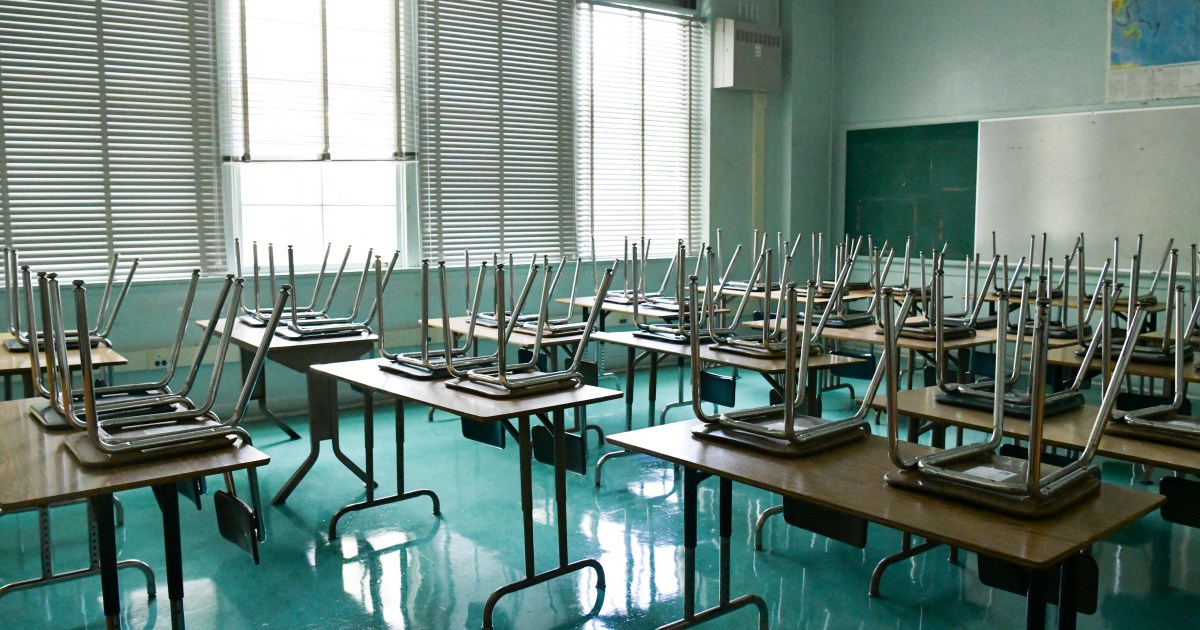Nearly two years after she was shot by a 6-year-old student, former Virginia teacher Abigail Zwerner delivered harrowing testimony in civil court, describing how she believed she was dying in the moments after the bullet tore through her hand and into her chest.
Taking the stand on Thursday, October 30, Zwerner recounted the January 6, 2023 incident at Richneck Elementary in Newport News, Virginia, and the aftermath that continues to shape her life. “I thought I was dying, I thought I had died,” she told jurors, according to NBC News. “I thought I was on my way to heaven or in heaven. But then it all got black.”
The testimony comes as part of Zwerner’s $40 million lawsuit against former assistant principal Ebony Parker, who is accused of ignoring multiple warnings that the student had a gun before the shooting. Parker has denied wrongdoing. A verdict has not yet been reached.
Zwerner’s Emotional Testimony
Zwerner described the physical and emotional cost of the shooting in stark detail. When the first-grader fired, the bullet pierced her hand before striking her chest, where it remains today. A physician testified earlier in the trial that removing the bullet would pose greater risk than leaving it in place.
In court, Zwerner explained how everyday tasks can still feel overwhelming. She recalled a recent moment at lunch with her attorney when she struggled to open a bag of potato chips, ultimately asking for help—something that now happens with routine items like water bottles. The seemingly small challenges, she said, are a reminder of the larger trauma she continues to navigate.
That trauma, she added, extends far beyond the physical. Zwerner shared that she broke down on the morning she was supposed to watch the filmed version of Hamilton when she realized the movie features dueling scenes. “I felt like everything just came over my body,” she said. “I remember crying a lot, and I remember that afterwards.”
Her account underscored the ways her life has been reshaped since the shooting—how moments that would once seem innocuous can now trigger powerful stress responses tied to the incident.
Warnings Allegedly Ignored Before Shooting
The crux of Zwerner’s civil complaint centers on the school’s response to warnings reportedly made hours before the shooting. According to testimony cited by NBC News, a Richneck Elementary teacher said she told Parker three separate times that students had informed her the boy had a gun in his backpack. Another teacher testified she delivered similar concerns to the assistant principal after a different student reported the same alarming claim.
Zwerner argues the attack was entirely preventable if administrators had acted quickly on those reported warnings. The civil suit alleges Parker failed to respond to clear signs that the child posed a danger that day.
Under cross-examination, Parker’s attorney suggested Zwerner could have taken more decisive action herself regarding the student. Zwerner responded that she believed a colleague was already reporting the concerns to the assistant principal and trusted that administrators would intervene appropriately. “I didn’t [take any other action], honestly didn’t think twice,” Zwerner said. “It was my understanding that the administration wouldn’t think twice as well when alerted about a potential gun in school.”
Defense Pushback & Ongoing Questions
The defense has attempted to cast doubt on the extent of Zwerner’s injuries, pointing to her enrollment in cosmetology school and her stated interest in pursuing a future career in beauty. Zwerner’s team has characterized these arguments as minimizing the long-term physical and emotional effects she experiences, emphasizing medical testimony about the bullet’s ongoing risks and the day-to-day limitations she described in court.
As the trial progresses, the testimony has provided a sobering window into what Zwerner contends was a preventable tragedy—and the wider implications it has had for her health, her career goals, and her sense of safety in spaces that once felt routine. The case also spotlights broader questions about school safety practices and the protocols administrators follow when confronted with urgent reports from staff and students.
While the lawsuit specifically targets Parker, any civil verdict would be paid by the Virginia Risk Sharing Association (VRSA), an insurance pool that covers numerous public entities across the state, including school boards, according to NBC News. The arrangement underscores that the financial liability in such cases typically falls to institutional insurers, not individual school employees.
For Zwerner, the courtroom offers a forum to put her experience on the record and to seek accountability she says was absent on the day of the shooting. For the jurors, the decision will hinge on whether they find that school leadership failed to act on multiple warnings—and whether that alleged failure directly led to the harm Zwerner suffered.
With no verdict yet, the trial remains focused on testimony from educators and experts, along with Zwerner’s own detailed account of what happened and how that day continues to reverberate. However the jury rules, the proceedings have already laid bare the human stakes behind school safety protocols—and the lasting impact when they are alleged to have fallen short.















































































































